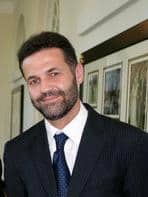A Sustained Discussion Project
What will citizenship of the future look like? Will global issues like climate change, food security, and human migration project us into greater global cooperation? Will this cooperation manifest as global conceptions of citizenship? Or, might we retract our sense of belonging to smaller localities and witness a revival of the city-state? Might we restrict our communities into smaller and smaller units or tribes? As corporations grow in power and reach, should we anticipate citizenship of the future being linked to corporations that can provide security, healthcare, and a sense of community? Or, might we see the emergence of virtual states and virtual citizens?
Beyond exploring the various conceptions of governance, we will also explore who is included and excluded in these possibilities. Will citizenship expand? Will we see the emergence of children (or younger adults) becoming fuller citizens? Will felons or previously incarcerated persons become full citizens again? Might we extend the rights we associate with human citizenship to animals, waterways, protected lands, etc.? Will corporations remain citizens in the future? Could we extend rights of citizenship to artificial intelligence? To future or past generations? Or, might citizenship constrict to include fewer but more capable persons? What if we required testing for citizenship—based on knowledge, capacity, or even genetic makeup?
This project will boldly call into question how we think about citizenship. We will wonder how we might move beyond thinking about citizenship as a state of being, an “isness,” and define citizenship through practices and actions. What will it mean to exercise citizenship in the future? What will be the obligations and duties of citizens? What will bind us together as citizens? What kinds of sensibilities or knowledge will local, national, or global citizen possess? How will these be developed? Will we educate for them? Will we indoctrinate or socialize? How will technology impact the ways we practice or think about citizenship in the future? What sort of institutions will be necessary for local, corporate, city, or global citizens to engage and participate in governance? Finally, what might a post-citizenship world look like? Can we even imagine it?
To learn more about this project, contact Shannon Wheatley Hartman or Eric Schmucker.



